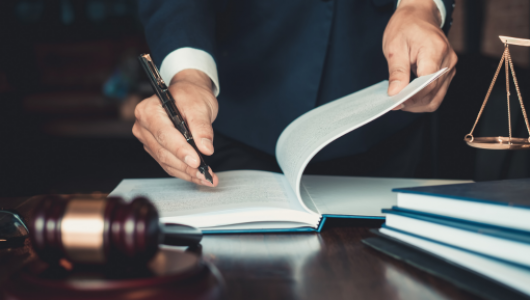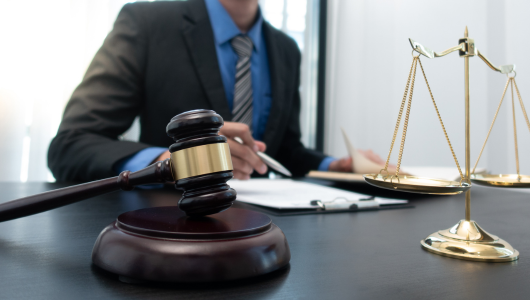Have you been charged with an Offence against the Control of Use of Dangerous Articles?
- Over 30 years experience in the criminal justice system
- Track record of success
- Nationally acclaimed expertise
Free Legal Advice 24/7
If you are facing charges for the possession or use of a dangerous article under Section 7 of the Control of Weapons Act 1990 (“CWA”), it is important to understand the nature of the offence and the potential legal consequences. Below is an overview of the key aspects of the charge:
What does it mean to be charged with an offence of usage of a Dangerous Article?
- Possession or Carrying in a Public Place (s7(1))
- A person must not possess or carry a dangerous article in a public place without a lawful excuse.
- Possession or Carrying in or Near Licensed Premises (s7(1A))
- A person must not possess or carry a dangerous article in licensed premises or in a public place near licensed premises without a lawful excuse.
- Lawful Excuse (s7(2))
- “Lawful excuse” includes:
- Pursuit of lawful employment, duty, or activity.
- Participation in lawful sport, recreation, or entertainment.
- Legitimate collection, display, or exhibition of the article.
- Use of the article for its intended purpose.
- “Lawful excuse” does not include possession or carriage of a dangerous article for self-defence.
- “Lawful excuse” includes:
- Circumstances for Lawful Excuse (s7(4))
- The court must consider the circumstances, such as time and location, when determining whether a person has a lawful excuse.
Under Section 7 of the Control of Weapons Act 1990 (“CWA”):
- The court must consider the circumstances, such as time and location, when determining whether a person has a lawful excuse.
- Possession or Carrying in a Public Place (s7(1))
Penalties for Offences Under Section 7
- Possession or Carrying in a Public Place Without Lawful Excuse (s7(1))
- 60 penalty units or imprisonment for up to 6 months.
- Possession or Carrying in or Near Licensed Premises Without Lawful Excuse (s7(1A))
- 120 penalty units or imprisonment for up to 1 year.
- Possession or Carrying in a Public Place (s7(1B))
- If convicted under s7(1A), you cannot be convicted under s7(1) for the same act or omission.
What is a dangerous Article?

A “dangerous article” is defined in section 3 of the CWA as:
(b) an item that has been altered or modified to function as a weapon; or
(c) any other item carried with the intent to use it as a weapon.

What does the prosecution have to prove?
- For Possession or Carrying a Dangerous Article in a Public Place Without Lawful Excuse (Section 7(1)):
- Element 1: You possessed or carried a dangerous article.
- Element 2: The dangerous article was in a public place.
- Element 3: You did not have a lawful excuse for possessing or carrying the dangerous article.
- For Possession or Carrying a Dangerous Article Near Licensed Premises Without Lawful Excuse (Section 7(1A)):
- Element 1: You possessed or carried a dangerous article.
- Element 2: The dangerous article was in licensed premises or in a public place near licensed premises.
- Element 3: You did not have a lawful excuse for possessing or carrying the dangerous article in that location.
- For Determining Lawful Excuse (General Considerations, Section 7(2)):
- Element 1: Your possession or carrying of the dangerous article was not for a lawful purpose, such as lawful employment, sport, recreation, or legitimate collection.
- Element 2: The article was not used for its intended purpose or was not carried for a lawful excuse, such as for collection or display, rather than for self-defence.
Factors and defences to consider:
Can the prosecution establish all elements of the offence?
- Was the alleged dangerous article one which can fall under the definition above
- or did you have a lawful excuse for carrying the dangerous article?
- Did you act alone?
- What were the surrounding circumstances to your offence?
Defences are personalised to each individual’s circumstances, so seeking expert advice is vital to structure a plan that aims for the best possible outcome.
Where will my case be heard?
Control of Use of Dangerous Articles will be heard in the Magistrates’ Court.
Testimonials
What people Say
St Kilda, Victoria 3182
1800 130 120
-
I found myself again before the magistrates court for an indictable offence, I was worried about receiving a jail sentence because of my age and h... Read MoreI found myself again before the magistrates court for an indictable offence, I was worried about receiving a jail sentence because of my age and history, but once I spoke to Jasmin Dhillon and the MK Law team, all my worries were taken away! Jasmin took the time to explain to me the process and kept me informed every step of the way, she has a deep understanding of the law and a genuine heartfelt commitment to achieving the best possible outcome for her clients. Thanks to her hard work and expertise, we achieved a no conviction outcome which has enabled me to continue working hard and pursue my dream career! I am forever grateful for their service and would highly recommend the MK Law team to anyone in need of legal assistance, they are truly dedicated and one of a kind in their field. Read Less55/5
-
Thanks Marcus Denning for being with me from start to end and to give me a fantastic outcome from my trial..👏👏👏🎖🎖🎖🎖🎖🎖Fi... Read MoreThanks Marcus Denning for being with me from start to end and to give me a fantastic outcome from my trial..👏👏👏🎖🎖🎖🎖🎖🎖First time getting charged, didn't know what to do. I was like a fish out of water. Started to research some law firms and mk law popped did some background checks and found good info about the firm. So I stuck with them and i don't regret nothing about my experience with mk law..... Read Less55/5
-
Professional. Transparent. Experienced. Marcus Denning left no stone unturned, sealing a complete win at trial. Our experience at MK LAW was beyon... Read MoreProfessional. Transparent. Experienced. Marcus Denning left no stone unturned, sealing a complete win at trial. Our experience at MK LAW was beyond exceptional. Read Less55/5
-
I recently used the services of Marie Lukic of MK law. She is very professional, dedicated and knowledgeable lawyer. Extremely grateful to have Ma... Read MoreI recently used the services of Marie Lukic of MK law. She is very professional, dedicated and knowledgeable lawyer. Extremely grateful to have Marie who did exceptional job. I would highly recommend Marie Lukic of MK law firm. 👍 Read Less55/5
What happens next?
After being charged with an offence under the Control of Weapons Act 1990, your next steps involve obtaining legal representation from an experienced criminal defence lawyer who will guide you through the process, explain your rights, evaluate the evidence, and develop a defence strategy. You will need to attend court as required, where your lawyer will represent you during preliminary hearings, possible negotiations, and, if necessary, a trial.
Your lawyer will review all evidence and witness statements and may gather additional evidence or expert testimony to strengthen your defence. In some cases, they may negotiate a plea deal with the prosecution, which could lead to a reduced charge or penalty. At your court hearing, your lawyer will challenge the prosecution’s case, present your defence, and advocate for the best possible outcome. Ultimately, the court will decide on the verdict and determine any penalties or sentencing based on the evidence and legal arguments presented. Don’t delay, call MK Law on 1800 130 120 for expert advice today.
Free Legal Advice 24/7
Contact Us
Call Anytime For Free Legal Advice 24/7
Top 5 firms by reputation dealing with traffic and criminal law matters.
- 2/212 Barkly Street, St Kilda Victoria, 3182 Australia
- 1800 130 120
- marcus@mklawfirm.com.au